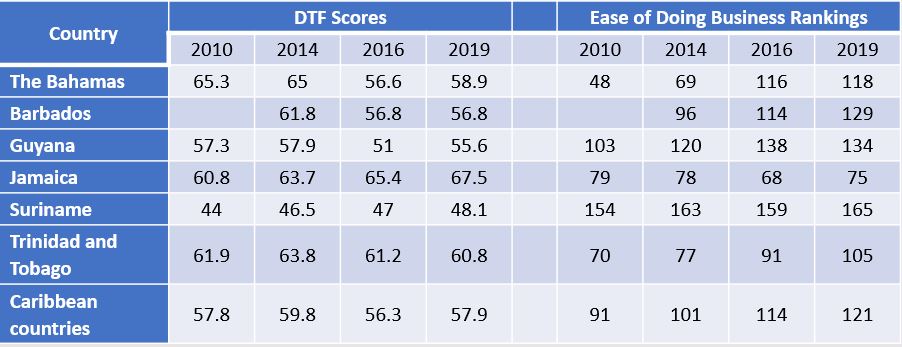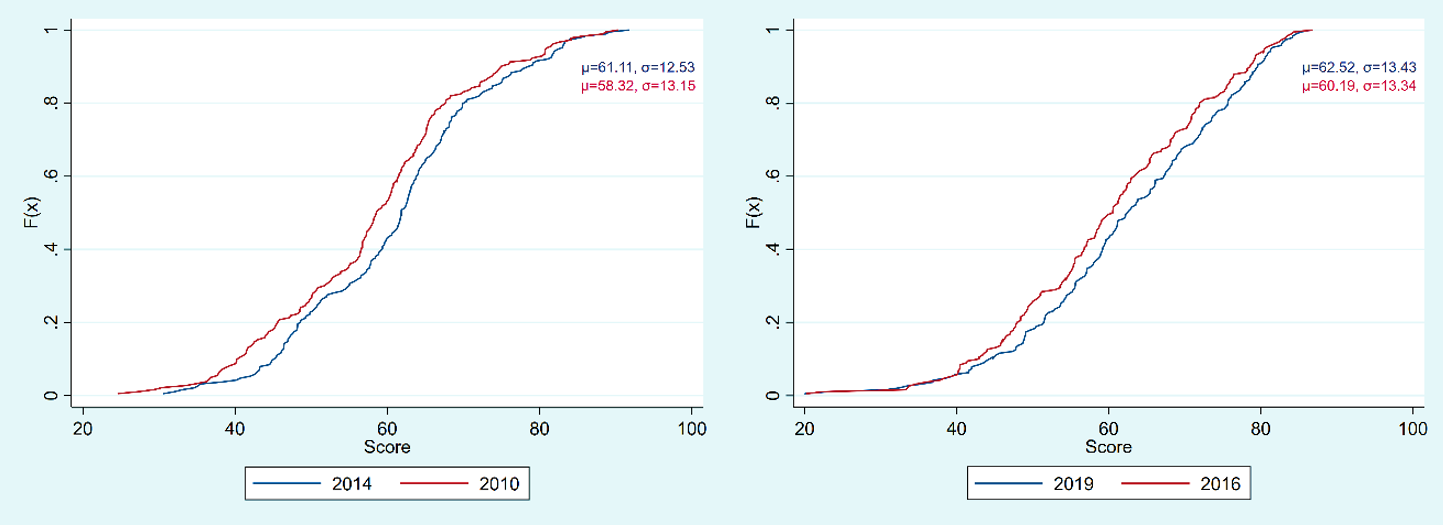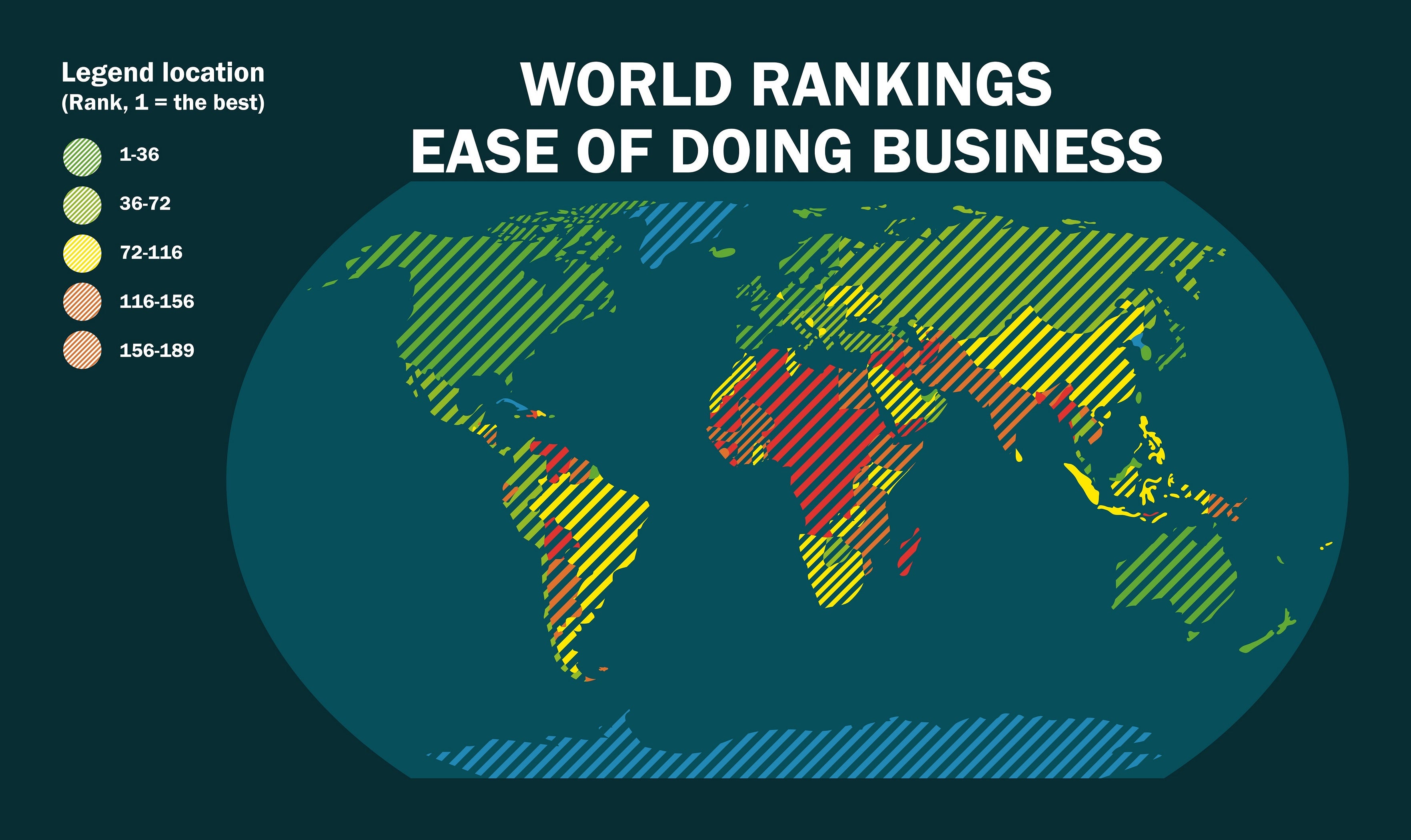In January of this year, Minister Marsha Caddle of Barbados announced the creation of a Doing Business (DB) subcommittee with the objective of improving the country’s ranking in the World Bank’s Doing Business indicator (DBI). In announcing a specific desire to climb in the Doing Business ranking, Barbados joins countries like Jamaica, China, India and Russia. In light of the interest of policymakers in the Doing Business, this blog explores how the Caribbean has been doing with respect to the Doing Business rankings.
The Doing Business project was created to compare the business environment of the economies around the world. By quantifying the ease of the business regulation, the rankings encourage policymakers to review and improve their country regulations and norms. The yearly results are also widely used by academics interested in the relationship between business regulation and outcomes such as economic growth, foreign direct investment or even poverty.
So how has the Caribbean been doing? Most of the Caribbean countries have shown a positive but small improvement in their overall Distance to Frontier (DTF) score (Table 1). The DTF score benchmarks economies with respect to regulatory best practice (DTF=100). The ranking orders economies based on the score. Jamaica and Suriname had a higher score in 2019 than in 2010. However, in terms of ranking, only Jamaica ranks higher in 2019 than in 2010. Jamaica and Trinidad and Tobago are also the only countries that positioned above the Latin American and the Caribbean average ranking (112th) in 2019. The Bahamas, Barbados, Guyana, and Trinidad and Tobago show a significant drop in their DTF scores between 2014 and 2016, which coincides with changes in the methodology between the two reports. When the methodology for compiling the DB was refined, the scores of Caribbean countries worsened.
Table 1. Distance to Frontier Score and Ease of Doing Business Ranking, 2010–2019

Why is it that the Caribbean countries are not positioning better in the DB ranking? The results in Table 1 suggests that non-Caribbean countries have been adapting their regulations in a faster and more substantial way, which punished the slow-moving Caribbean countries. Other countries have advanced, which meant that the same scores rank worse over time. For instance, with the same score in 2016 and 2019, Barbados ranks 13 places worse. Figure 1 confirms the push towards the frontier, as it shows how countries are systematically moving toward the frontier. While countries are approaching the regulatory best practice, countries that keep or improve their score can fall in the doing business ranking if they are not reforming fast enough.
Figure 1. Empirical Cumulative Distribution Function (CDF) of the Ease of Doing Business Distance to Frontier Score


Notes: The distance to frontier score captures the gap between an economy’s performance and a measure of best practice across the entire sample. The CDF’s of the four-year samples presented are separated into two graphs due to differences in the DBI methodology for the periods 2010–2014 and 2016–2019.
The Caribbean countries face a challenge if they want to catch up on the DB Indicators, as they have been displaced from their ranking by other countries that have been pursuing reforms more aggressively. As the Doing Business ranking are highly visible and potentially contribute to the decision on investments location, authorities feel inclined to reform their business regulations in line with the DB methodology. While several countries have started to use the DB ranking as a policy goal itself, reforms should focus on areas that are constraining investment, development and job creation and not the DB ranking. (See a similar argument in a recent policy brief with respect to starting a business in the Caribbean. Read it here.)


Leave a Reply